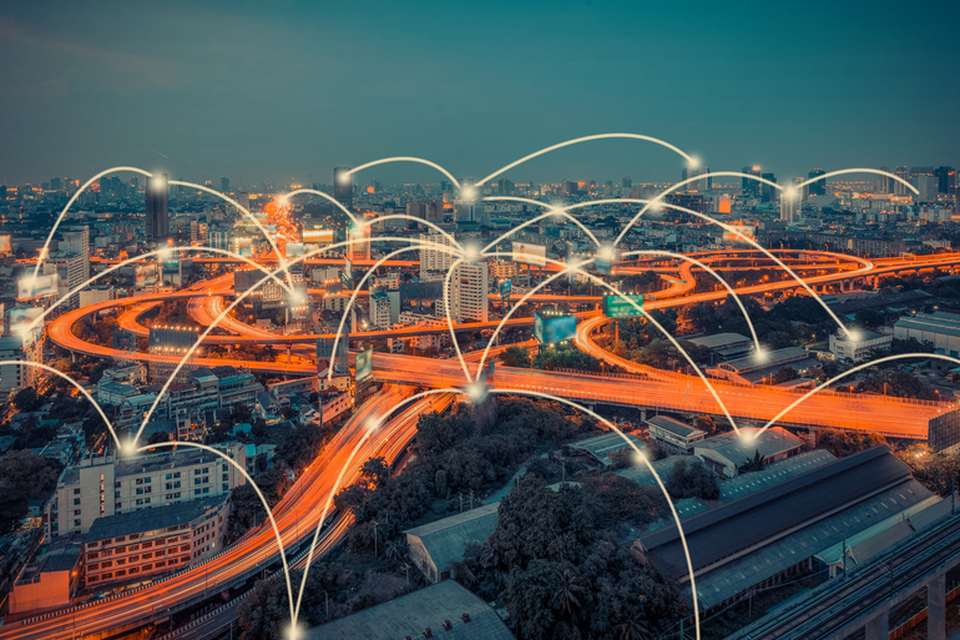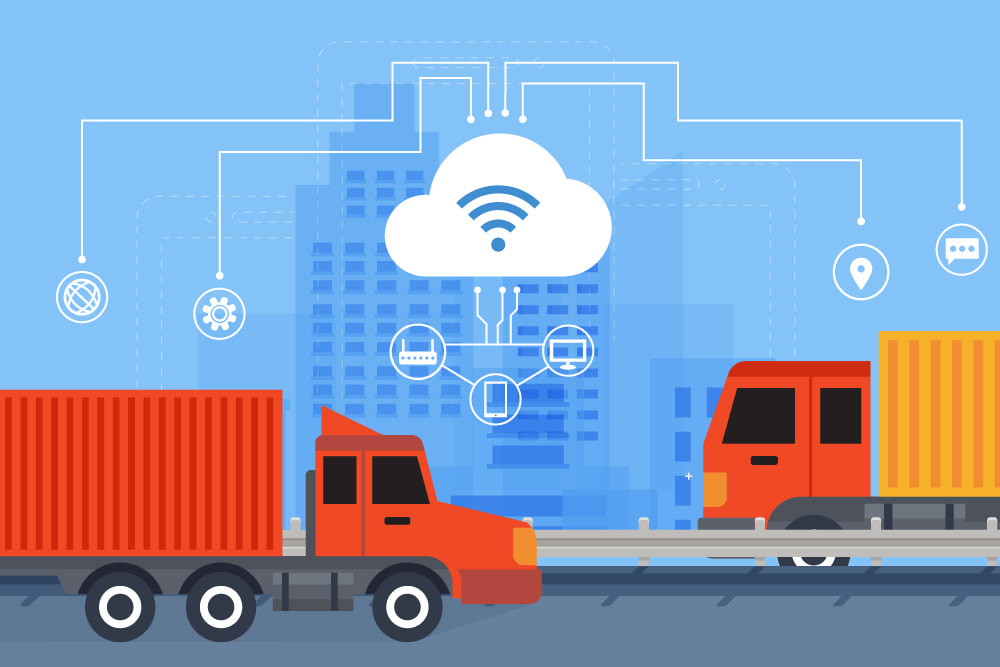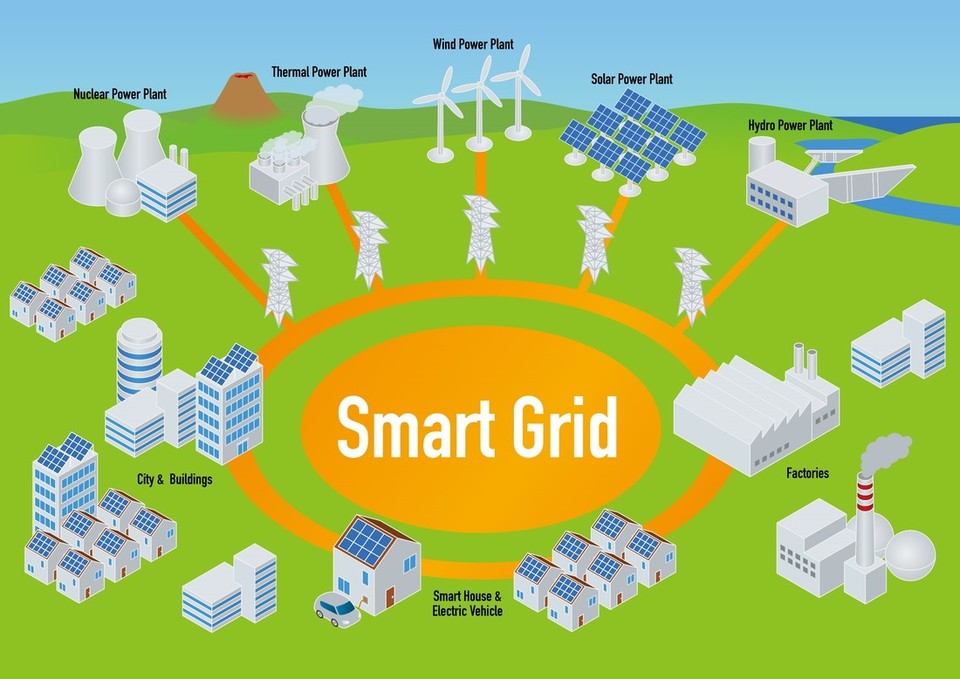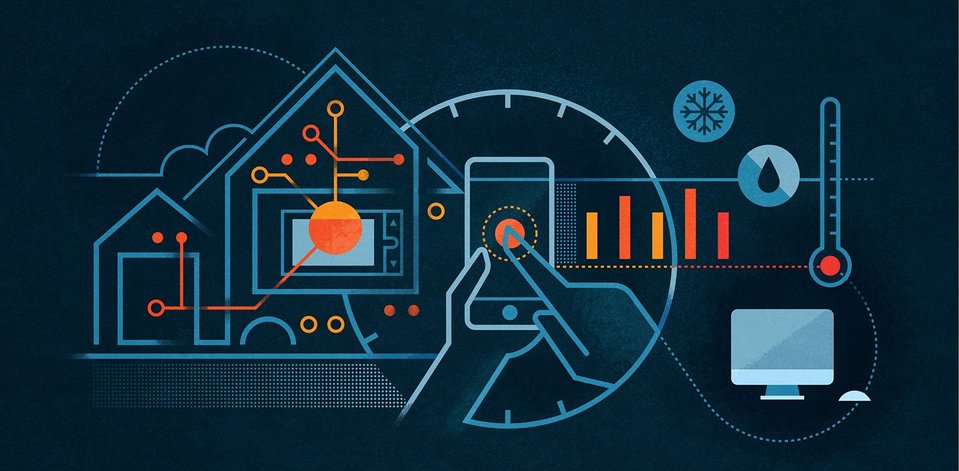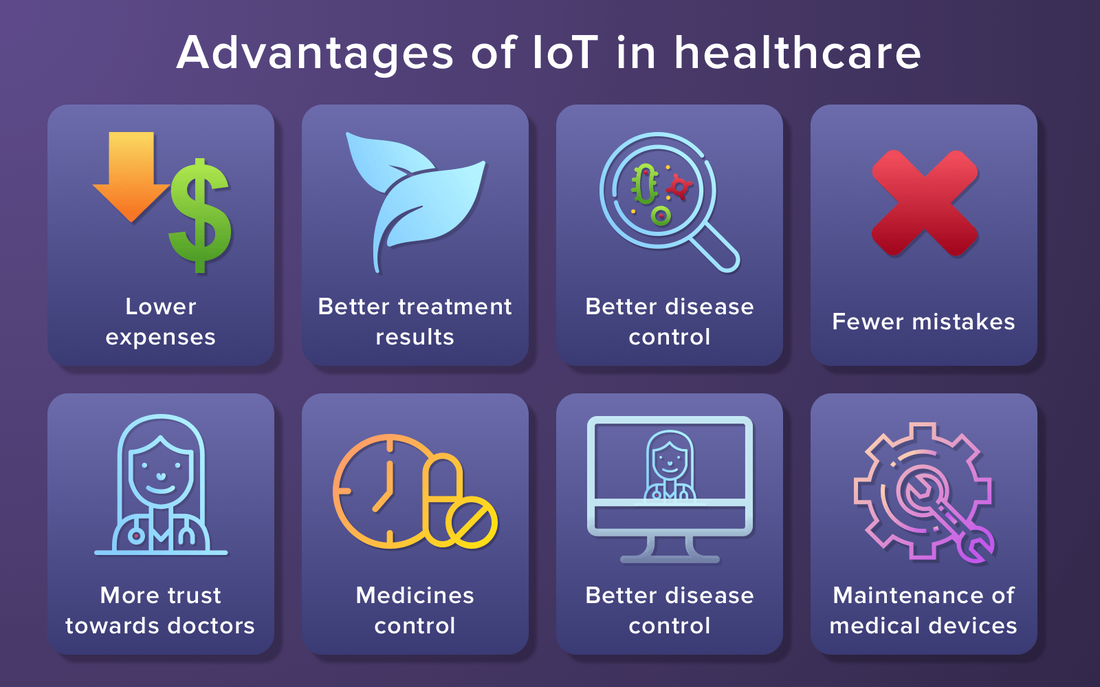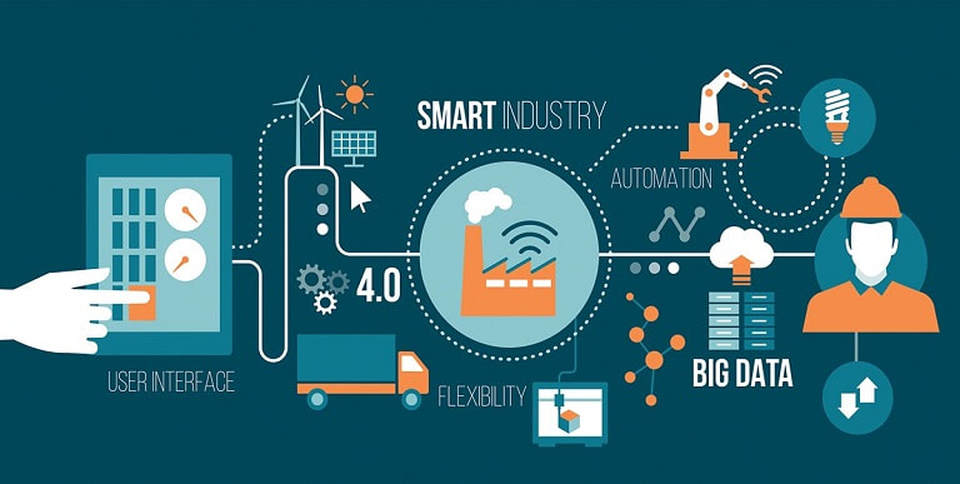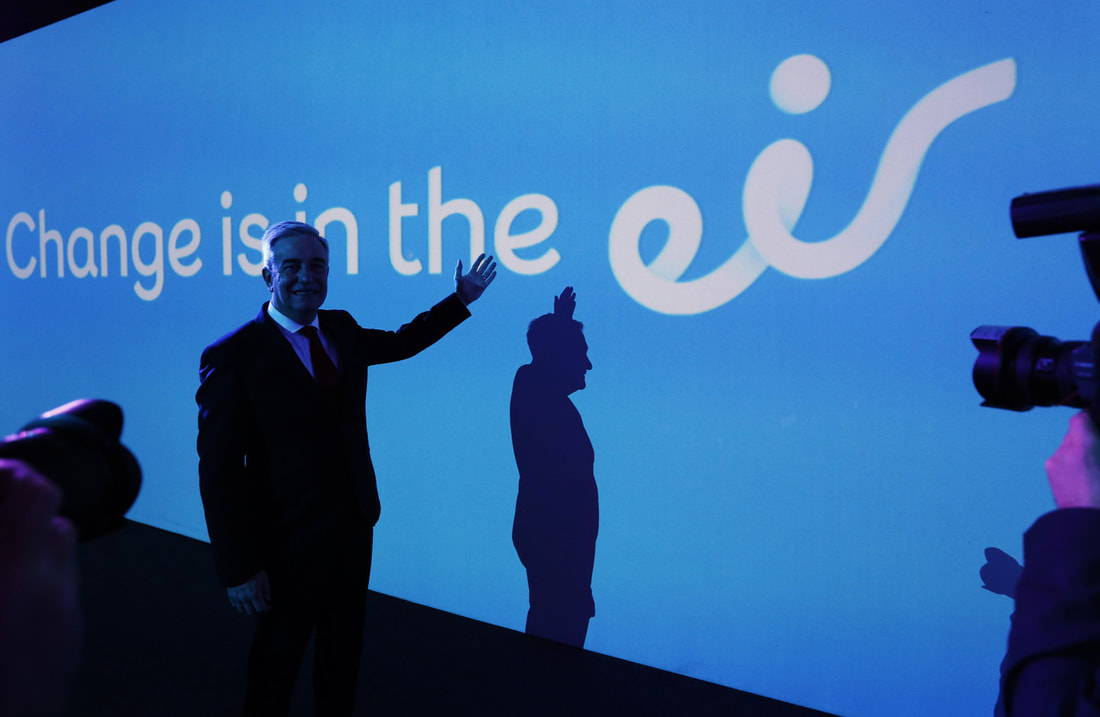The IoT Revolution: Connecting Everything
The dawn of the IoT Revolution is just upon us, a revolution that will touch every part of our society, breaking down our barriers.
Published 25/07/18
Every so often there is a huge technological advancement that catapults our society forward and breaks down our barriers. Artificial Intelligence, 5G and Millimeter-wave spectrum, Blockchain and IoT all stand out as very promising technologies, each with their own set of breakthroughs. IoT or the Internet of Things will change the way the entire world operates. We are at the beginning of a long road to connecting everything around us, providing us with invaluable data that can be used to maximise efficiency and minimise our use of precious resources. The IoT revolution will change everything, providing us with the keys to unlock unlimited possibilities for businesses, governments and consumers.
A massive number of sensors, billions if not trillions, will connect to one network, a network with the power to break down our barriers. Anything with a sensor will become, in a sense, intelligent. This why it is also referred to as the Intelligence of Things. When things become intelligent, they provide a wealth of data to analyse and act upon. This is the fundamental purpose of IoT, to garner a huge number of data points, which when combined give us the opportunity to run services in ways we could never have imagined before. Believe me, when I say this, anything that can be connected to the Internet will be connected to the Internet. That includes seemingly insignificant objects such as your doorbell, bin and car.
At present, our phones connect to a cellular network, giving us access to the Internet. With IoT, everything will connect to the Internet. There are different methods of fulfilling the IoT Revolution. Today's 4G networks are unable to facilitate an IoT Revolution due to a lack of capacity and other constraints such as power-hungry 4G modems. Thankfully, the industry has recognised these drawbacks and is working quickly to fix them. Sensors will access a low power wide area network (LPWA) such as NB-IoT or Sigfox. Substantial differences exist between the different types of LPWA networks, these differences will dictate the use cases of sensors. I will discuss the differences that exist between networks such as NB-IoT and Sigfox in a later article.
A massive number of sensors, billions if not trillions, will connect to one network, a network with the power to break down our barriers. Anything with a sensor will become, in a sense, intelligent. This why it is also referred to as the Intelligence of Things. When things become intelligent, they provide a wealth of data to analyse and act upon. This is the fundamental purpose of IoT, to garner a huge number of data points, which when combined give us the opportunity to run services in ways we could never have imagined before. Believe me, when I say this, anything that can be connected to the Internet will be connected to the Internet. That includes seemingly insignificant objects such as your doorbell, bin and car.
At present, our phones connect to a cellular network, giving us access to the Internet. With IoT, everything will connect to the Internet. There are different methods of fulfilling the IoT Revolution. Today's 4G networks are unable to facilitate an IoT Revolution due to a lack of capacity and other constraints such as power-hungry 4G modems. Thankfully, the industry has recognised these drawbacks and is working quickly to fix them. Sensors will access a low power wide area network (LPWA) such as NB-IoT or Sigfox. Substantial differences exist between the different types of LPWA networks, these differences will dictate the use cases of sensors. I will discuss the differences that exist between networks such as NB-IoT and Sigfox in a later article.
Transportation becomes Faster, more Efficient.
IoT will be a game changer for all forms of transportation, whether that is on land, sea or air. There has been significant investment in using IoT for delivery systems, look to Amazon and freight carriers. Sensors will be attached to trucks which track a wide range of different conditions such as location, fuel level and speed. This data may then be utilised by the company to increase efficiency, for example, calculating the speed which results in the lowest level of fuel consumption. In this way, IoT will give companies ultimate real-time control and understanding of their fleet of vehicles.
Most importantly, sensors will allow us to gain a greater understanding of our travel patterns which we can then use to optimise our transport systems. In cities where congestion is a problem, road sensors that monitor traffic can provide real-time information to drivers so they can choose an alternative route. Machine learning may be utilised to analyse this data and determine the most efficient roads to route traffic. Connected cameras on streets can detect traffic incidents such as a crash and automatically call for emergency services. This same data may be used to minimise pollution by directing traffic away from locations where a large number of people live.
As we hurtle towards the adoption of driverless vehicles, IoT will play a fundamental role in ensuring our safety. The sensors in such vehicles will communicate with one another, informing other vehicles of dangerous conditions. Sensors in vehicles can also relay information that will be used for maintenance, such as notifying us when a particular component fails and requires replacement.
The impacts of IoT in transport extend beyond the vehicles themselves, transforming the infrastructure that supports these vehicles. Sensors on runways can determine if there is ice present and if it is safe for a plane to land and give this information to the relevant airport authority for analysis. Parking our cars will become easier than ever, a mobile app can tell us exactly where the car is located and its status, thwarting car theft. We can also see where car parking spaces are available via an interactive map, saving time and fuel. Our street lights are some of the dumbest devices out there, remaining lit for hours even if there is no one nearby. As IoT will connect everything, these street lights can communicate with cars and phones, only activating when required.
Put simply, IoT will transform every aspect of our transport systems, from the roads that carry our cars to the lights that illuminate our streets. City councils or transport authorities will have access to huge amounts of crowdsourced data which can be used to direct traffic away from congestion, making our roads safer and more efficient. Crucially, we will know in real-time the exact state of the transport system.
Most importantly, sensors will allow us to gain a greater understanding of our travel patterns which we can then use to optimise our transport systems. In cities where congestion is a problem, road sensors that monitor traffic can provide real-time information to drivers so they can choose an alternative route. Machine learning may be utilised to analyse this data and determine the most efficient roads to route traffic. Connected cameras on streets can detect traffic incidents such as a crash and automatically call for emergency services. This same data may be used to minimise pollution by directing traffic away from locations where a large number of people live.
As we hurtle towards the adoption of driverless vehicles, IoT will play a fundamental role in ensuring our safety. The sensors in such vehicles will communicate with one another, informing other vehicles of dangerous conditions. Sensors in vehicles can also relay information that will be used for maintenance, such as notifying us when a particular component fails and requires replacement.
The impacts of IoT in transport extend beyond the vehicles themselves, transforming the infrastructure that supports these vehicles. Sensors on runways can determine if there is ice present and if it is safe for a plane to land and give this information to the relevant airport authority for analysis. Parking our cars will become easier than ever, a mobile app can tell us exactly where the car is located and its status, thwarting car theft. We can also see where car parking spaces are available via an interactive map, saving time and fuel. Our street lights are some of the dumbest devices out there, remaining lit for hours even if there is no one nearby. As IoT will connect everything, these street lights can communicate with cars and phones, only activating when required.
Put simply, IoT will transform every aspect of our transport systems, from the roads that carry our cars to the lights that illuminate our streets. City councils or transport authorities will have access to huge amounts of crowdsourced data which can be used to direct traffic away from congestion, making our roads safer and more efficient. Crucially, we will know in real-time the exact state of the transport system.
Utilities become Intelligent, Conserving Resources
Utilities such as the water and electricity network are a critical part of our infrastructure and will only grow in importance in the future. IoT can be used to ensure these utilities operate with maximum efficiency, reducing costs and conserving our precious resources. A major part of this will be connected metres which automatically monitor and collect data such as water usage. These smart metres will save time as they do not have to be read manually and can identify localised faults, for example, abnormally high water usage may suggest there is a burst pipe nearby.
Our electricity providers, such as ESB in Ireland, can use data from sensors across the network to predict patterns of usage and prepare for times when there is increased demand on the network. This will become an invaluable tool as we transition to renewable sources such as wind and solar which are dependent upon weather conditions for electricity generation. We will be able to predict when renewable sources are insufficient to meet the demand and temporarily use more traditional fossil fuels until the demand falls to a level that renewable sources can support. Essentially, IoT will allow us to create a more versatile electricity network which intelligently adapts to different patterns of use.
The benefit of using IoT in utilities will also impact the customer. For example, let's look to the water network. Sensors will send data to the water utility company which then analyses this data, compares it to averages, and sends a report to the customer. This report will compare your usage of water with that of other people in your area and provide you with tips on how to minimise usage. The same can apply to your consumption of electricity.
For companies that are involved in oil or gas extraction, IoT will deliver significant cost savings and enhanced data about your operation. As I write this very sentence, some of the first sensors in oil and large water wells are pinging data to the company that operates the well. This data includes the performance of the well and how it may be improved. This allows the company to operate more efficiently and to understand how they can improve their operations in the future. Gas pipelines can be monitored in real time, locating areas of leakage and corrosion, ensuring our safety.
When IoT touches every part of our utilities, we will minimise our use of precious resources and maximise operational efficiency. The benefits will be huge, ensuring we are prepared for unprecedented demand, while at the same time educating customers on how their usage directly affects their bill and the environment.
Our electricity providers, such as ESB in Ireland, can use data from sensors across the network to predict patterns of usage and prepare for times when there is increased demand on the network. This will become an invaluable tool as we transition to renewable sources such as wind and solar which are dependent upon weather conditions for electricity generation. We will be able to predict when renewable sources are insufficient to meet the demand and temporarily use more traditional fossil fuels until the demand falls to a level that renewable sources can support. Essentially, IoT will allow us to create a more versatile electricity network which intelligently adapts to different patterns of use.
The benefit of using IoT in utilities will also impact the customer. For example, let's look to the water network. Sensors will send data to the water utility company which then analyses this data, compares it to averages, and sends a report to the customer. This report will compare your usage of water with that of other people in your area and provide you with tips on how to minimise usage. The same can apply to your consumption of electricity.
For companies that are involved in oil or gas extraction, IoT will deliver significant cost savings and enhanced data about your operation. As I write this very sentence, some of the first sensors in oil and large water wells are pinging data to the company that operates the well. This data includes the performance of the well and how it may be improved. This allows the company to operate more efficiently and to understand how they can improve their operations in the future. Gas pipelines can be monitored in real time, locating areas of leakage and corrosion, ensuring our safety.
When IoT touches every part of our utilities, we will minimise our use of precious resources and maximise operational efficiency. The benefits will be huge, ensuring we are prepared for unprecedented demand, while at the same time educating customers on how their usage directly affects their bill and the environment.
Homes become Smart, more Secure
The IoT Revolution will pave the way for smarter homes, homes which live in harmony with nature and the owner. We are already witnessing the birth of the first smart homes today, with "smart speakers" such as Google Home and Amazon Echo providing homeowners with the ability to remotely control lights, thermostats and plugs. This is just the beginning, everything in the home will be connected to the Internet, becoming easily accessible via one unified interface. Homeowners will have instant access and control of their entire home at their fingertips.
One of the most useful applications of IoT in the home is vastly enhanced security. Imagine having remote access to a network of security cameras dotted around the home, using facial recognition technology to alert the homeowner only when the system detects someone suspicious. Smart doorbells will alert the homeowner when activated and show an image of the person who activated the doorbell. But the security of our home extends beyond preventing unwanted individuals entering, smart smoke alarms will alert us if there is a fire, automatically contact the fire services and inform us of the exact source of the fire.
We are in the streaming age, an age where there are millions of movies and tv shows available on-demand from a range of sources such as Netflix, YouTube and Amazon Prime Video. This same principle extends to music, which is now predominantly consumed via streaming services such as Spotify, Deezer and Apple Music. Just look at Google's Chromecast, a device which has taken the world by storm, and an excellent example of the power of IoT for entertainment. We can instantly cast video from our phones to our smart TV's, making use of our home's router as the medium in which to connect to the Internet.
Our homes will become more efficient thanks to IoT, saving money and natural resources. Lights will only illuminate when needed and can be controlled remotely, our thermostats will use machine learning to determine the optimum temperature for comfort and energy efficiency. We will gain the ability to monitor energy and water usage in real time, giving us greater insight into how we can improve our efficiency.
WiFi will become a fundamental part of the IoT ecosystem in our homes, with the router interconnecting dozens of devices in our home. Everything in the home will connect seamlessly with one another, giving us more control of our homes than ever before. This is a perfect example of the importance of a reliable broadband connection, highlighting the critical need for a successful National Broadband Plan in Ireland.
One of the most useful applications of IoT in the home is vastly enhanced security. Imagine having remote access to a network of security cameras dotted around the home, using facial recognition technology to alert the homeowner only when the system detects someone suspicious. Smart doorbells will alert the homeowner when activated and show an image of the person who activated the doorbell. But the security of our home extends beyond preventing unwanted individuals entering, smart smoke alarms will alert us if there is a fire, automatically contact the fire services and inform us of the exact source of the fire.
We are in the streaming age, an age where there are millions of movies and tv shows available on-demand from a range of sources such as Netflix, YouTube and Amazon Prime Video. This same principle extends to music, which is now predominantly consumed via streaming services such as Spotify, Deezer and Apple Music. Just look at Google's Chromecast, a device which has taken the world by storm, and an excellent example of the power of IoT for entertainment. We can instantly cast video from our phones to our smart TV's, making use of our home's router as the medium in which to connect to the Internet.
Our homes will become more efficient thanks to IoT, saving money and natural resources. Lights will only illuminate when needed and can be controlled remotely, our thermostats will use machine learning to determine the optimum temperature for comfort and energy efficiency. We will gain the ability to monitor energy and water usage in real time, giving us greater insight into how we can improve our efficiency.
WiFi will become a fundamental part of the IoT ecosystem in our homes, with the router interconnecting dozens of devices in our home. Everything in the home will connect seamlessly with one another, giving us more control of our homes than ever before. This is a perfect example of the importance of a reliable broadband connection, highlighting the critical need for a successful National Broadband Plan in Ireland.
Healthcare becomes Easier, less Obtrusive
IoT can support a myriad of use cases in healthcare, from tracking the equipment that serves patients to reduce the number of hours spent in waiting rooms. In the future, less time will be spent in hospitals as doctors will have the ability to remotely monitor patients. This saves time and money as the patient forgoes the need to visit the hospital and improves the quality of life for that patient as they do not have to make long journeys to the hospital on a frequent basis, especially beneficial to patients who are unable to reach the hospital due to a mobility issue.
Hospital equipment is vital to ensuring the welfare of patients, and in many cases, a split second fail could result in death. IoT will allow hospitals to remotely monitor their equipment and provide warnings before an issue arises. This could also be used to ensure that the equipment is kept up to date with the latest software, mitigating failures from security breaches or bugs.
In today's world, it is very difficult for our hospitals to track the movement of patients, staff, visitors and equipment. This is a huge issue for large hospitals where vitally important things such as medicine can easily go missing. The IoT Revolution will solve this by providing hospitals with an easy way to track everything in real-time. A huge breakthrough is the use of prescription pills with microscopic sensors, pinging information about the patient to doctors. This type of a device ensures the patient receives the correct dosage and can help when administering future prescriptions.
The increasing pervasiveness of wearable devices such as smartwatches will prove to be invaluable tools for analysing a patients health over an extended period of time. The important feature that these devices share is the fact that they are unobtrusive, they do not invade a patients life. In short, IoT will transform pretty much every conceivable aspect of our healthcare system, ultimately benefiting the patient and thereby ensure that they can live a life free from worry about their health.
Hospital equipment is vital to ensuring the welfare of patients, and in many cases, a split second fail could result in death. IoT will allow hospitals to remotely monitor their equipment and provide warnings before an issue arises. This could also be used to ensure that the equipment is kept up to date with the latest software, mitigating failures from security breaches or bugs.
In today's world, it is very difficult for our hospitals to track the movement of patients, staff, visitors and equipment. This is a huge issue for large hospitals where vitally important things such as medicine can easily go missing. The IoT Revolution will solve this by providing hospitals with an easy way to track everything in real-time. A huge breakthrough is the use of prescription pills with microscopic sensors, pinging information about the patient to doctors. This type of a device ensures the patient receives the correct dosage and can help when administering future prescriptions.
The increasing pervasiveness of wearable devices such as smartwatches will prove to be invaluable tools for analysing a patients health over an extended period of time. The important feature that these devices share is the fact that they are unobtrusive, they do not invade a patients life. In short, IoT will transform pretty much every conceivable aspect of our healthcare system, ultimately benefiting the patient and thereby ensure that they can live a life free from worry about their health.
Manufacturing becomes Ultra-Efficient
IoT will usher in the fourth industrial revolution, allowing us to produce goods with an unprecedented level of efficiency. The key advantage that IoT will provide to companies involved in manufacturing is data, data which can be analysed to improve the manufacturing process.
Factories will be remotely monitored and controlled, essentially eliminating the requirement for people on the ground at all times. The advantages of this are obvious, and allow companies to operate more factories than ever before. The equipment in many factories is worth a huge amount of money, IoT will ensure that this equipment operates within optimal conditions. Sensors will feed information such as temperature, humidity and vibration. This application maximises the uptime of factory equipment, instantly notifying the relevant person in the event that a machine fails to conduct its designated task within the predetermined parameters.
The IoT Revolution will allow factory workers to gain a much greater insight into the production lines, using data to help them identify particular areas that require improvement. This tight optimisation of the production process will reduce the wastage of materials significantly. Managing inventory will become so much easier, benefitting large companies hugely, giving them the ability to pinpoint the exact location of all their assets on a constant basis.
The safety of workers in factories will be improved dramatically thanks to IoT. Companies will be able to aggregate information from numerous sources, such as reported injuries and the state of machines at the time. This also applies to the quality of goods, which will become more consistent than ever, as the company can monitor each individual product on a macro-level.
Factories will be remotely monitored and controlled, essentially eliminating the requirement for people on the ground at all times. The advantages of this are obvious, and allow companies to operate more factories than ever before. The equipment in many factories is worth a huge amount of money, IoT will ensure that this equipment operates within optimal conditions. Sensors will feed information such as temperature, humidity and vibration. This application maximises the uptime of factory equipment, instantly notifying the relevant person in the event that a machine fails to conduct its designated task within the predetermined parameters.
The IoT Revolution will allow factory workers to gain a much greater insight into the production lines, using data to help them identify particular areas that require improvement. This tight optimisation of the production process will reduce the wastage of materials significantly. Managing inventory will become so much easier, benefitting large companies hugely, giving them the ability to pinpoint the exact location of all their assets on a constant basis.
The safety of workers in factories will be improved dramatically thanks to IoT. Companies will be able to aggregate information from numerous sources, such as reported injuries and the state of machines at the time. This also applies to the quality of goods, which will become more consistent than ever, as the company can monitor each individual product on a macro-level.
Conclusion: When Everything is Connected, Everything is Intelligent.
The IoT Revolution is just over the horizon and we are already witnessing some of its first implementations. The revolution will transform everything, making everything intelligent. Our roads will become safer, our homes will become havens of entertainment and our utilities will become more versatile. But it doesn't end there, because when we connect everything, there are virtually no limitations as to what we can achieve. The companies that are pioneering IoT in Ireland, think Vodafone, Qualcomm, VT IoT and so many others, will be the companies remembered for breaking down our barriers and making the seemingly impossible become possible.
To gain an understanding of just how monumental IoT will be, think about this: Our phones gained access to the Internet over a decade ago, now look at the world today, it's a completely different place. Entire industries have blossomed from the phone's connection to the Internet, and people can contact who they wish anywhere across the globe in just a mere second. Now imagine IoT, we will connect everything to the internet, not just the phone, even bins and fridges. The fact that IoT is initiating a fourth industrial revolution demonstrates its potential to upend our society for the better.
To gain an understanding of just how monumental IoT will be, think about this: Our phones gained access to the Internet over a decade ago, now look at the world today, it's a completely different place. Entire industries have blossomed from the phone's connection to the Internet, and people can contact who they wish anywhere across the globe in just a mere second. Now imagine IoT, we will connect everything to the internet, not just the phone, even bins and fridges. The fact that IoT is initiating a fourth industrial revolution demonstrates its potential to upend our society for the better.
eir: Few Companies have this much PotentialA deep dive into the state of eir in 2018, looking to the future of Ireland's largest telecoms company.
|
